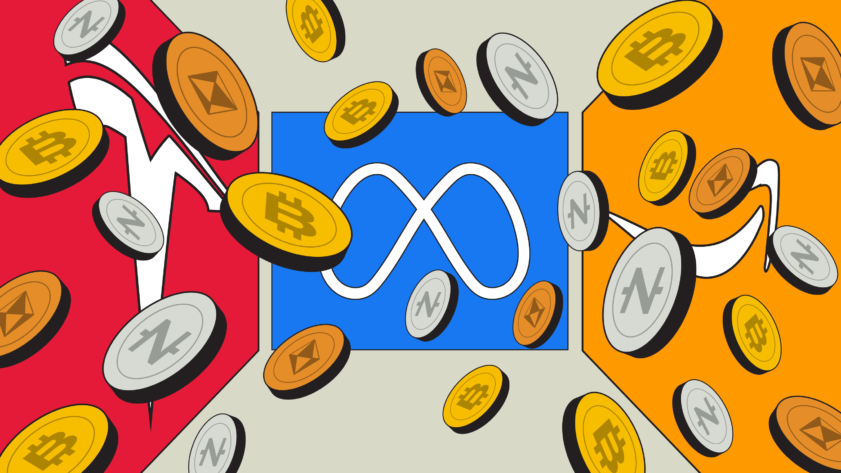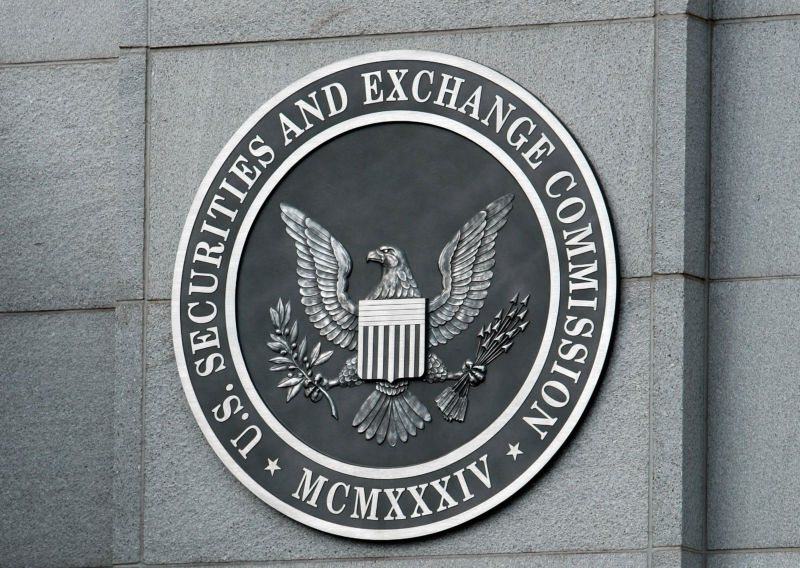In August, the US Treasury’s Office of Foreign Assets Control (OFAC)
sanctioned
the cryptocurrency platform Tornado Cash, a virtual currency “mixer” designed to make it harder to trace cryptocurrency transactions—and a worldwide favorite money-laundering platform. Americans are now forbidden from using it. According to the US government, Tornado Cash was sanctioned because it
allegedly laundered
over $7 billion in cryptocurrency, $455 million of which was stolen by a North Korean state-sponsored hacking group.
Tornado Cash is not a traditional company run by human beings, but instead a series of “smart contracts”: self-executing code that exists only as software.
Critics
argue
that prohibiting Americans from using Tornado Cash is a restraint of free speech, pointing to court rulings in the 1990s that established that computer language is a form of language, and that software programs are a form of speech. They also suggest that the Treasury Department has the authority to sanction only humans and
not software
.
We think that the most useful way to understand the speech issues involved with regulating Tornado Cash and other decentralized autonomous organizations (DAOs) is through an analogy: the golem. There are many versions of the Jewish golem legend, but in most of them, a person-like clay statue comes to life after someone writes the word “truth” in Hebrew on its forehead, and eventually starts doing terrible things. The golem stops only when a rabbi erases one of those letters, turning “truth” into the Hebrew word for “death,” and the golem ceases to function.
The analogy between DAOs and golems is quite precise, and has important consequences for the relationship between free speech and code. Ultimately, just as the golem needed the intervention of a rabbi to stop wreaking havoc on the world, so too do DAOs need to be subject to regulation.
The equivalency of code and free speech was established during the first “
crypto wars
” of the 1990s, which were about cryptography, not cryptocurrencies. US agencies tried to use export control laws to
prevent sophisticated cryptography software
from being exported outside the US. Activists and lawyers cleverly showed how code could be transformed into speech and vice versa, turning the source code for a cryptographic product into a printed book and
daring US authorities
to prevent its export. In 1996, US District Judge Marilyn Hall Patel
ruled
that computer code is a language, just like German or French, and that coded programs deserve First Amendment protection. That such code is also functional, instructing a computer to do something, was irrelevant to its expressive capabilities, according to Patel’s ruling. However, both
a concurring and dissenting opinion
argued that computer code also has the “functional purpose of controlling computers and, in that regard, does not command protection under the First Amendment.”
This disagreement highlights the awkward distinction between ordinary language and computer code. Language does not change the world, except insofar as it persuades, informs, or compels other people. Code, however, is a language where words have inherent power. Type the appropriate instructions and the computer will implement them without hesitation, second-guessing, or independence of will. They are like the words inscribed on a golem’s forehead (or the written instructions that, in some versions of the folklore, are placed in its mouth). The golem has no choice, because it is incapable of making choices. The words are code, and the golem is no different from a computer.
Unlike ordinary organizations, DAOs don’t rely on human beings to carry out many of their core functions. Instead, those functions have been translated into a set of instructions that are implemented in software. In the case of Tornado Cash, its code exists as part of Ethereum, a widely used cryptocurrency that can also run arbitrary computer code.
Cryptocurrency zealots thought that DAOs would allow them to place their trust in secure computer code, which would do exactly what they wanted it to do, rather than fallible human beings who might fail or cheat. Humans could still have input, but under rules that were enshrined in self-running software. The past several years of DAO activity has taught these zealots a series of
painful and expensive lessons
on the limits of both computer security and incomplete contracts: Software has bugs, and contracts may do weird things under unanticipated circumstances. The combination frequently results in multimillion-dollar frauds and thefts.
Further complicating the matter is that individual DAOs can have very different rules. DAOs were supposed to create truly decentralized services that could never turn into a source of state power and coercion. Today, some DAOs talk a big game about decentralization, but provide power to founders and
big investors
like Andreessen Horowitz. Others are deliberately set up to frustrate outside control. Indeed, the creators of Tornado Cash explicitly wanted to create a golem-like entity that would be immune from law. In doing so, they were following in a long libertarian tradition.
In 2014, Gavin Woods, one of Ethereum’s core developers,
gave a talk
on what he called “allegality” of decentralized software services. Woods’s argument was very simple. Companies like PayPal employ real people and real lawyers. That meant that “if they provide a service to you that is deemed wrong or illegal … then they get fucked … maybe [go] to prison.” But cryptocurrencies like Bitcoin “had no operator.” By using software running on blockchains rather than people to run your organization, you could do an end-run around normal, human law. You could create services that “cannot be shut down. Not by a court, not by a police force, not by a nation state.” People would be able to set whatever rules they wanted, regardless of what any government prohibited.
Woods’s speech
helped inspire
the first DAO (The DAO), and his ideas live on in Tornado Cash. Tornado Cash was
designed
, in its founder’s words, “to be unstoppable.” The way the protocol is “designed, decentralized and autonomous …[,] there’s nobody in charge.” The people who ran Tornado Cash used a decentralized protocol running on the Ethereum computing platform, which is itself radically decentralized. But they used indelible ink. The protocol was deliberately instructed
never to accept
an update command.
Other elements of Tornado Cash—its website, and the GitHub repository where its source code was stored—have been taken down. But the protocol that actually mixes cryptocurrency is still available through the Ethereum network, even if it doesn’t have a user-friendly front end. Like a golem that has been set in motion, it will just keep on going, taking in, processing, and returning cryptocurrency according to its original instructions.
This gets us to the argument that the US government, by sanctioning a software program, is
restraining free speech
. Not only is it more complicated than that, but it’s complicated in ways that undercut this argument. OFAC’s actions aren’t aimed against free speech and the publication of source code, as its
clarifications
have made clear. Researchers are not prohibited from copying, posting, “discussing, teaching about, or including open-source code in written publications, such as textbooks.” GitHub could potentially still host the source code and the project. OFAC’s actions are aimed at preventing persons from using software applications that undercut one of the most basic functions of government: regulating activities that it deems endangers national security.
The question is whether the First Amendment covers golems. When your words are used not to persuade or argue, but to animate a mindless entity that will exist as long as the Ethereum blockchain exists and will carry out your final instructions no matter what, should your golem be immune from legal action?
When Patel issued her famous ruling, she caustically dismissed the argument that “even one drop of ‘direct functionality'” overwhelmed people’s expressive rights. Arguably, the question with Tornado Cash is whether a possibly notional droplet of free speech expressivity can overwhelm the direct functionality of running code, especially code designed to refuse any further human intervention. The Tornado Cash protocol will accept and implement the routine commands described by its protocol: It will still launder cryptocurrency. But the protocol itself is frozen.
We certainly don’t think that the US government should ban DAOs or code running on Ethereum or other blockchains, or demand any universal right of access to their workings. That would be just as sweeping—and wrong—as the general claim that encrypted messaging results in a “lawless space,” or the contrary notion that regulating code is always a prior restraint on free speech. There is wide scope for legitimate disagreement about government regulation of code and its legal authorities over distributed systems.
However, it’s hard not to sympathize with OFAC’s desire to push back against a radical effort to undermine the very idea of government authority. What would happen if the Tornado Cash approach to the law prevailed? That is, what would be the outcome if judges and politicians decided that entities like Tornado Cash could not be regulated, on free speech or any other grounds?
Likely, anyone who wanted to facilitate illegal activities would have a strong incentive to turn their operation into a DAO—and then throw away the key. Ethereum’s programming language is Turing-complete. That means, as Woods argued back in 2014, that one could turn all kinds of organizational rules into software, whether or not they were against the law.
In practice, it wouldn’t be so easy. Turning business principles into running code is hard, and doing it without creating bugs or loopholes is much harder still. Ethereum and other blockchains still have hard limits on computing power. But human ingenuity can accomplish many things when there’s a lot of money at stake.
People have legitimate reasons for seeking anonymity in their financial transactions, but these reasons need to be weighed against other harms to society. As privacy advocate Cory Doctorow
wrote
recently: “When you combine anonymity with finance—not the right to speak anonymously, but the right to run an investment fund anonymously—you’re rolling out the red carpet for serial scammers, who can run a scam, get caught, change names, and run it again, incorporating the lessons they learned.”
It’s a mistake to defend DAOs on the grounds that code is free speech. Some code is speech, but not all code is speech. And code can also directly affect the world. DAOs, which are in essence autonomous golems, made from code rather than clay, make this distinction especially stark.
This will become even more important as robots become more capable and prevalent. Robots are even more obviously golems than DAOs are, performing actions in the physical world. Should their code enjoy a safe harbor from the law? What if robots, like DAOs, are designed to obey only their initial instructions, however unlawful—and refuse all further updates or commands? Assuming that code is free speech and only free speech, and ignoring its functional purpose, will at best tangle the law up in knots.
Tying free speech arguments to the cause of DAOs like Tornado Cash imperils some of the important free speech victories that were won in the past. But the risks for everyone might be even greater if that argument wins. A world where democratic governments are unable to enforce their laws is not a world where civic spaces or civil liberties will thrive.
This essay was written with Henry Farrell, and
previously appeared
on Lawfare.com.
chevron_right






